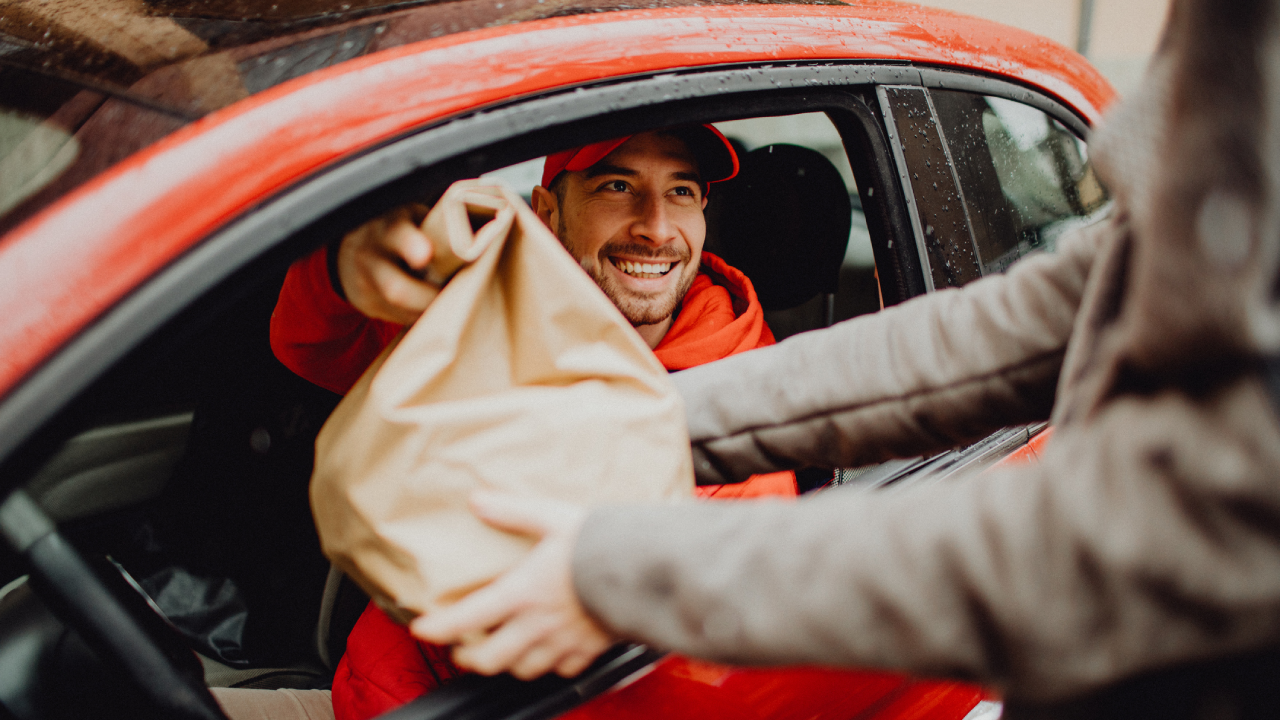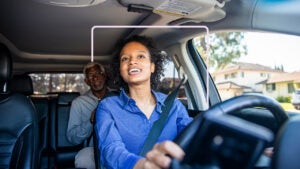Considering a side hustle? You might need insurance for that

Thinking about picking up some kind of extra work to make some extra cash? You’re not alone. Bankrate’s most recent Side Hustle Survey shows that 27 percent of American adults have some kind of work in addition to their full-time occupation. There are plenty of reasons to try to boost one’s income, with one potential driver being lack of financial cushion. Bankrate’s latest Emergency Savings Report shows that only 46 percent of U.S. adults have enough emergency savings set aside to cover three months of expenses.
Side hustles can help pad your pockets, but they also beg another important question: are you covered if something goes wrong while you’re hustling? Our insurance editorial team will help you gain a better understanding of whether you need to take out additional insurance for your side gig.
Why you should consider getting insurance for your side hustle
Whether your goal is to pay the bills or to make a little extra spending cash, today’s high cost of living makes side hustles appealing to many. However, before you start earning money, consider setting up time to chat with an insurance agent to understand the risks involved – and how insurance for side hustles might mitigate them. Every hustle is different and has unique coverage needs. If your current insurer doesn’t offer the type of coverage that makes the most sense for your hustle, you might need to contact a commercial agency or an insurance broker.
Here are the key reasons an insurance policy might be worthwhile:
- You’ll be protected against legal disputes. You can end up in court for loads of reasons, and if you have a client who feels you’ve wronged them, you might find yourself in a courtroom. Having the proper insurance in place can help cover legal fees.
- You may be able to recoup your losses if you’re injured. If you can’t continue earning from your side hustle due to some type of injury, an insurance policy might be able to protect your income stream while you get well.
- You’ll be able to focus more on making money from your work – and less on the stress of something going wrong. Ultimately, insurance for side hustles does what insurance for anything else does: it provides peace of mind so you aren’t spending time worrying about coming out of pocket for a worst-case scenario.
Food delivery insurance
From an insurance standpoint, food delivery is risky. Delivery drivers might push the speed limit to deliver food while it’s hot or to meet a quota. Delivery drivers are also on the road much more than the average person, increasing the chances of being involved in an accident. With this in mind, it’s no wonder that a personal auto policy typically doesn’t cover food delivery.
If you deliver food, you might need a commercial auto policy. Depending on the state and the carrier, you can potentially add an endorsement (or a coverage option) to your personal auto policy instead, but you should contact your insurer for specifics. Although many food delivery apps and companies offer some sort of coverage for their drivers, these policies can be quite limited.
When reviewing the table below, please note that liability insurance helps to pay for injuries or property damage you cause to others in an at-fault accident. Physical damage coverage (or comprehensive and collision coverage) covers repairs for your vehicle after an accident, regardless of fault, as well as damage resulting from weather-related incidents, hitting an animal, theft, vandalism and fire.
| Delivery company | Company-provided liability coverage | Company-provided physical damage coverage |
|---|---|---|
| DoorDash | Yes, but only on active delivery | No |
| Uber Eats | Yes, although coverage limits vary depending on if you are waiting for a delivery request or are en route | Yes, but only during delivery* |
| Grubhub | No | No |
| Postmates | Yes, but only during delivery | No |
| Pizza delivery | Typically no, but it depends on the company | Typically no, but it depends on the company |
*Must carry comprehensive and collision on personal auto policy for company-provided coverage to apply.
Another important thing to mention is that your car insurance company may require you to remove your delivery vehicle from your policy or cancel your car insurance policy altogether, even if you only use one of your covered vehicles for delivery. Your carrier might take these actions even if your delivery company offers coverage.
Ridesharing insurance
Uber and Lyft provide some coverage when you’re working, but the situation is similar to those driving for a food delivery app — coverage only applies during certain times of the ride, coverage is limited and your insurance company could nonrenew your vehicle or policy if you use your personal vehicle for ridesharing.
For proper coverage, rideshare drivers may need to consider rideshare insurance (if available from your insurance company) or secure a commercial auto policy.
| Ridesharing company | Company-provided liability coverage | Company-provided physical damage coverage |
|---|---|---|
| Uber | Yes, but coverage limits are reduced when waiting for a passenger vs. when en route | Yes, while en route to pick up a passenger and during the trip ($2,500 deductible)* |
| Lyft | Yes, but coverage limits are reduced when waiting for a passenger vs. when en route | Yes, while en route to pick up a passenger and during the trip ($2,500 deductible)* |
*Must carry comprehensive and collision on personal auto policy for company-provided coverage to apply.
Instacart insurance
As with food delivery, personal auto policies do not cover grocery delivery hustles, such as Instacart. Instacart also does not provide insurance for its shoppers. Technically speaking, you do not need insurance for Instacart — you only need access to a reliable vehicle to sign up as a shopper.
Instacart shoppers may instead need a ridesharing policy or commercial insurance depending on their state and carrier. You may want to talk to your insurance company to understand how (or if) your auto policy applies before you start a side hustle delivering groceries.
Cottage food insurance
If you are unlicensed, unpermitted and use your home kitchen to make food to sell to the public, you’re running a cottage food operation. Each state dictates its own cottage food regulations, but some popular items include:
- Baked goods like bread, cookies, cakes and pies
- James, jellies and preserves
- Nuts and granola
- Popcorn and kettle corn
- Dry mixes for cookies, cakes and dips
Not all kinds of food qualify as cottage food. For instance, processed foods don’t usually qualify and require special permits from your state’s Department of Agriculture or health department.
Although you may not be legally required to carry insurance to sell cottage food, you may want to consider purchasing a commercial general liability (CGL) policy for financial protection. A CGL policy provides liability coverage in case you are sued as a result of your side hustle.
Every business and commercial enterprise is different, so CGL policies are customizable. When speaking with your agent, cottage food hustlers may want to ask about the following coverage types:
- General liability coverage: General liability can provide financial protection if you damage someone else’s property or injure someone in the course of your business.
- Product liability coverage: If someone gets sick after eating one of your cottage food items, product liability may step in if that person decides to sue.
- Tools and equipment coverage: If you’d like to insure your cottage food equipment (your oven or stand-up mixer, for example), you may want to ask your agent about this coverage.
Additionally, if you sell your goods at a farmer’s market, the market manager may require you to carry liability insurance in case someone gets hurt while inside your tent or booth.
In-home daycare insurance
Providing childcare in your home can be a lucrative way to earn some extra cash, but it comes with huge potential liabilities. For instance, what would happen if a child under your care gets injured? Suppose you’re occasionally babysitting a family member’s child. In that case, your homeowners insurance policy may cover the child’s injuries under your medical payments coverage (up to your coverage limit). However, if you’re running an in-home daycare, that’s a different story.
You may want to contact your homeowners insurance company to ask what its definition of in-home daycare is, but generally, an in-home daycare is when you’re babysitting multiple children, multiple days a week, on a regular basis. A standard homeowners insurance policy doesn’t cover this exposure (unless your carrier offers an in-home daycare endorsement).
In-home daycare providers watching multiple children in their homes may want to consider a CGL policy with the following coverage options:
- General liability coverage: General liability coverage can protect your finances if you are sued because a child gets injured while under your care.
- Commercial auto insurance: If you use a vehicle regularly to transport children under your care, you may need commercial auto insurance.
- Umbrella insurance: Although umbrella insurance is not part of a CGL policy, it can provide vital financial liability protection above your home, auto and commercial policy. If your liability limits are exceeded on these policies, umbrella insurance could help cover the remaining gap (up to the limit of umbrella coverage you carry).
You may also want to research your local and state laws regarding in-home daycare. You might need to obtain a license (in which case, certain types and limits of insurance will probably be required).
Lawn mowing insurance
If you mow lawns for extra cash, what would happen if you accidentally damaged a homeowner’s expensive sprinkler system? If you’re uninsured, you’d have to pay out of pocket. However, if you had commercial liability coverage, your policy might take care of the bill instead.
Depending on how many lawns you mow and how much equipment you own, you may want to request a quote for a business owner’s policy, or BOP. A business owner’s policy is a package of coverage types, including liability insurance, insurance for your equipment and coverage for the building you store your equipment in, among others.
If you travel to different job sites with your equipment (with or without a pull-behind trailer), you may also need a commercial auto policy.
Dog walking insurance
Rover, Wag! and Care.com all match dog walkers (and dog sitters) with pet owners. Depending on where you live, there may be licensing requirements, but these services themselves do not require pet caretakers to carry insurance.
Still, dog walkers might be held liable if the dog they’re walking injures another person or animal. This is where dog walking insurance might help. Dog walking insurance is a general term for a package of commercial coverage options tailored for dog walkers. Some options could include:
- General liability coverage: Depending on the state you live in, you could be held liable if the dog you’re walking bites someone. General liability coverage can help pay for the victim’s injuries and offer financial protection for your assets if the victim sues you.
- Veterinarian expense coverage: If the dog you’re walking gets injured while under your care, this coverage could help pay for the pet’s veterinarian bills.
- Animal bailee coverage: Imagine that the dog you’re walking gets loose. If it gets hit by a car or lost forever, the owner might hold you legally liable. This is where animal bailee coverage could come in. Animal bailee coverage can provide financial protection if the dog’s owner sues you because their pet was injured under your care.
Since this isn’t a common policy, you might want to seek out a company that specializes in dog walking insurance.
Third-party selling insurance
Selling (or re-selling) items on online platforms like Etsy, Poshmark, Depop or Amazon can be a great way to turn a hobby or passion project into cash. If you do it out of your home, though, you may need a commercial insurance policy. Many home insurance policies cover business property up to a certain amount (usually around $2,500), but depending on how you run your side hustle, it may not be enough coverage.
Even if you haven’t invested heavily in equipment to make your at-home business run smoother, you may need a commercial policy depending on how much revenue your business generates. Guidelines for this tend to vary on a state-by-state basis.
Can you do side work without insurance?
There are some side hustle scenarios that may not ultimately require insurance. For example, if you’re planning on helping your favorite restaurant establish a social media presence for a few hundred bucks each month, the risks are likely fairly low. However, it’s wise not to assume that you can bypass insurance for side hustles altogether. Consider talking to someone else who’s done similar work to see how they’re handling business insurance, and set up a meeting with a licensed insurance agent to discuss your options. A licensed agent will be able to help you understand the potential risks involved with your work and the costs necessary to financially protect yourself.
Why we ask for feedback Your feedback helps us improve our content and services. It takes less than a minute to complete.
Your responses are anonymous and will only be used for improving our website.






